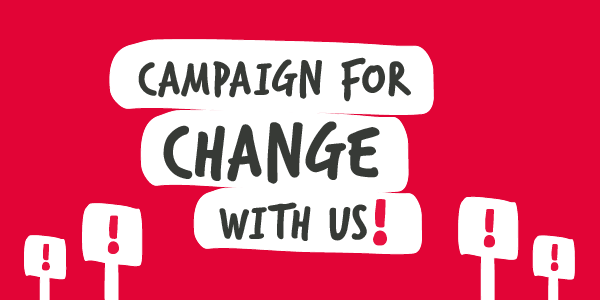We want real hope, not false hope from the NICE Conference 2023
When you are working in a condition that has not seen meaningful change for the last forty years, hope is vitally important. Not false hope, but real hope. Hope that will lead to improvements either in new treatments or better care. Listening to the opening sessions at the NICE Conference 2023 on Tuesday morning, you would have been forgiven for thinking that there is very little hope.
We started by acknowledging that the healthcare system was facing unprecedented level of challenge. We then wrapped up the first session with the two guest contributors essentially agreeing that no help is on the way to pull it out of this quagmire.
Yet, the message at the event wasn’t really about hope at all. 500 people from the life sciences sector, including representatives from patient groups, pharma, biotech, NHS, Universities and regulators had all come together to try and be the ones to save the day. There was an overwhelming sense of optimism and collaboration, without minimising the size of the task.
The challenges we face
Throughout our day at the NICE conference 2023 we heard from people on topics including the use of Real-World Data (RWD), the UK as a life sciences leader, medicines evaluation and the use of data.
At The Brain Tumour Charity, we are already engaging with the wider sector on these subjects to ensure we help make the biggest difference we can for the community.
For RWD, our BRIAN app helps to collect patient reported outcomes and behaviour that could help researchers and regulators in the future. It was interesting to see that in 13 technology appraisals, RWD had been used as primary evidence – really showing the potential this has. The use of data is connected to this too. Outside of the patient-reported parts of BRIAN, is NHS data. Once this can be accessed, we hope it will give useful insights into our community’s experience.
In terms of medicines evaluation, we have recently participated in NICE Technology Appraisal and will continue representing the community in them as more treatments come to market. It is essential that the system has a robust and agile process in place to ensure we get safe and effective new treatments to patients as quickly as possible.
Discussions around the UK Life Sciences sector are slightly more philosophical. We have industry making the case for the UK to remain an early launch market, NICE assessing cost and clinical effectiveness of new treatments, as well as producing guidance and scientific advice with a small staff of 800 (relative to over 1 million in the NHS alone), patients crying out for new treatments to be made available as soon as possible (in a condition like brain tumours, they cannot wait) and the NHS creaking under the weight of service delivery.
All those pieces are important. Only by working together and balancing the best mix will we achieve change.
Reasons to be cheerful
However, as I mentioned, there is reason to be hopeful. Firstly, because we have the NHS. The advantages of this were clearly outlined at the conference. They include the level of data it produces, the ability to coordinate nationally, the fact it is a single payer, the political support it gathers and the ability to control its costs.
Secondly, we have the power to solve it ourselves. Not only is no stakeholder acting in bad faith, but everyone is pulling the same direction. It was acknowledged by one person that it is easy to see the end goal as the system itself – but the end goal is ultimately better outcomes for patients. This was central to the whole conference and to every conversation I had.
With this in mind, we will continue to work with all to help find solutions. They won’t always be perfect, but we will ensure that they are helping our community live longer and better lives.

